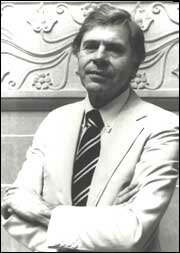


? ? ?


Christopher Lasch
|
Lasch pointed out, the new concept of the self has become minimal rather than expansive |
|
But it has become a strangely besieged orthodoxy. As the American philosopher Christopher Lasch pointed out, the new concept of the self has become minimal rather than expansive. "The concern with the self," he wrote, "which seems so characteristic of our time, takes the form of a concern with psychic survival."
Resistance to Vietnam in particular or capitalism in general was the one communal validation of the self. But the war ended with the defeat of the old American anti-communist orthodoxy, and, in 1989, with the destruction of the Berlin wall, politics ended with the triumph of capitalism. There was now no political way to a better world, only the workings of the market and liberal democracy. "The hope of a remedial politics," wrote Lasch, "has sharply declined... The hope that political action will gradually humanise industrial society has given way to a determination to survive the general wreckage or, more modestly, to hold one's own life together in the face of mounting pressures." The Woodstock nation became the therapeutic society. Deprived of an external cause, the people chose the internal cause of the atomised self. "I Will Survive" became the most popular song sung through the karaoke machines that were themselves technological expressions of a fantasy sublimation of the lonely self. Stress and other psychic traumas became the particular blights that threatened psychic survival; their treatment and control became urgent, expensive, profitable. Go to - Next Page | Previous Page | Home |